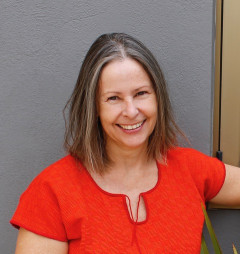‘Editation’? – how meditation helps me edit
Dec 20, 2021 — Alex Mackenzie
As an editor of English language learning materials I have to focus entirely on cross-checking whether the author’s original Word document has been transformed into a pleasing, colourful PDF file by the design team: something closer to what students and teachers expect to see in their English classes.
On opening the PDF this is what I do:
- Scroll through the pages to get a feel for the layout and overall quality.
- Work through the document methodically, starting with the macro elements: headers and footers, use of white space and sections.
- Check the images are consistent throughout, and as the author requested. Should it be a photo or an illustration, adult or student, crocodile or dragon?
- Work through from the beginning again, but now looking at every tiny detail – letter by letter, and word by word. This involves cross-checking several documents against this PDF: the author’s original Word manuscript, the audio script (and sometimes the recording or video), the answer key and the teacher’s notes. At the same time I need to register any image changes needed on a shared online tracking system.
My desk setup means my main attention is on the central monitor straight ahead of me, with a multitude of reference documents open on the second monitor to my right, and then there’s web access on my laptop to the left. My phone is at hand too, as is a glass of water, tea or coffee. Then, of course, there’s the view through the window above all this.

As the morning progresses I can easily have over 10 documents open, as well as my email, and up to seven browser tabs showing shared folders, fact-checking websites and dictionaries. There are numerous time-saving tricks and software tools a click away too.
The limitations on my proofreading work are in terms of budget and time. What is humanly possible and affordable has to be taken into account, and that’s where meditation helps.
Editing for me is best done in one-hour blocks, with 100% focus. So what sort of external distractions interrupt that hour’s focus, and how do they transform into internal ones?
External–internal, on-the-job distractions
I’m focussed on a sentence, cross-checking the answer key: 1c, 2f, 3d . . . scrolling down the author’s original manuscript, analysing the artwork chosen by the design team.
Distraction: Am I remembering the brief correctly or am I confusing it with the last job?
As I check, an email swoops into my peripheral vision on my laptop screen.
Distraction: Could this be some returned documents from the last job, a new contract, or just a newsletter?
Back to that sentence. Here’s a word that needs checking for US or UK spelling.
Distraction: Was I on this sentence? Did I miss one? Oh – there’s an Asiatic wasp buzzing at my window, could there be a nest near by? A dog barks. Has the post arrived? The spelling is easy to find but it triggers some other query and I go down a virtual rabbit hole.
A WhatsApp ‘ping’ lights up my smartphone screen.
Distraction: It’s probably one of a number of people – who I now start to worry about. . .
This page has an image I needed in a previous document.
Distraction: I could go back to rectify that now, or copy and paste the reference for later.
A phone call starts and ends before I’ve had a chance to notice the caller.
Distraction: Is it a sales pitch or that delivery service again? I should probably check now in case they give up. . .
Scrolling down looking for a particular image I notice my computer is slow. The fan whirrs.
Distraction: I try to hurry things up, clicking and sliding, cancelling and retrying. No – be patient! What if my laptop overheats? Have I backed up this week?
Back to the document. I’m on a roll. In fact I’m saving myself time in the next document by multitasking and commenting on images over several documents at once.
Distraction: I notice a mistake with a number and go off on a tangent – cross-checking other documents before reeling myself back to the original. Oops – now I realise I was wrong – in fact, I’ve introduced an error myself and now have to back track.
I notice the timer is over the hour mark – I should stop for a break, but I’m close to the end so push on.
Distraction: I’m thirsty, my shoulder is tense, my jaw is clenched, and my left thigh is cramping.
Finished! But wait – I haven’t cross-checked the teacher’s notes for the last section.
Distraction: I trust it’s correct, it’s mostly been error free so far . . . but there could be a howling mistake and I’d lose this client . . .
You get the idea.
So how does meditation help?
I have come to understand – through almost nine years of meditation – that my increasing conscious awareness is helping me manage these distractions, simply because I see them for what they are. So what do I do with that awareness?
Distracting thoughts I notice them, but act on them only as a sidestep for later attention (e.g. make a note on paper or open a webpage for later research), otherwise I let them go and get back to that sentence.
Losing my original intention I stop for a break as soon as I notice I’ve lost focus. If something else is competing for my attention I don’t pursue it (especially online), knowing that what looks helpful at first could actually create more distraction.
Keeping things simple I consider the consequences of doing – but also not doing – every editorial change and suggestion.
Body awareness I stop if physical sensations interfere with my mental focus – it’s probably close to the hour mark.
Patience and good humour I smile about the wildlife and wait for the computer. The machine responds to a stimulus, so constant clicking only confuses the system (isn’t that what happens with our minds?). Instead I use that waiting time well and look out the window, check the diary and phone, then stretch.
Choose the right tool I recognise the best approach and method for the moment. In editing that’s selecting appropriate time-saving software; in meditation it’s choosing eyes open or closed, focusing on the breath or doing a body scan.
Rigour I return to the job after a break with renewed intention. In editing that means scrolling back to the part just before the place I probably lost focus; in meditation it’s returning to the breath.
Finally, I tell myself: don’t be lazy! In both editing and meditation there are no short cuts when it comes to attention, but the rewards are definitely worth the effort.
